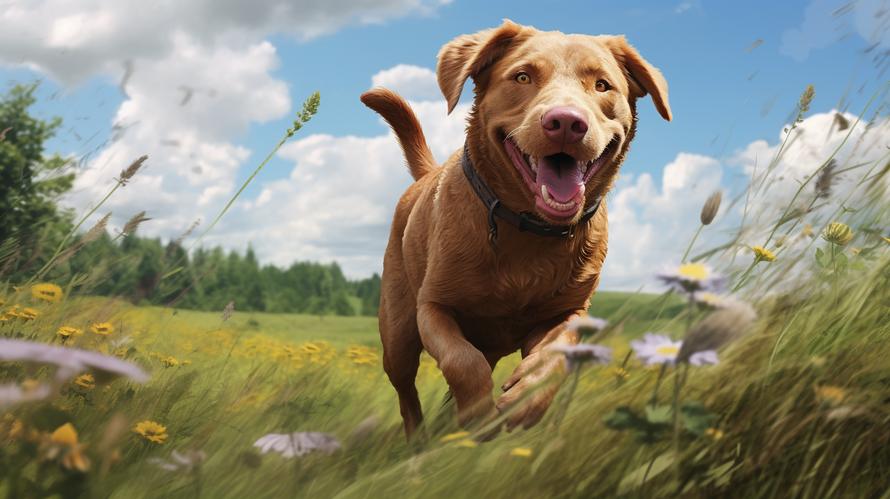Have you ever seen a whale that loves cheese? No, not the ocean-living giants but the one who is probably walking beside you right now with a waggy tail and wet nose? Your Chesapeake Bay Retriever or otherwise known as “Chessie” is that sort of a cheese-loving whale. These dogs, known for their remarkable retrieving skills and resilient temperament, have an undying love for cheese, making it more than just man’s best friend.
However, while your Chessie might relish a cube of cheddar, cheese isn’t the only ingredient you should rely on for the overall well-being of your pet. Therefore, preparing a yummy meal for them encapsulates more than just the taste. Health, nutrition, and love, should be the three spices you add to their bowl.
It’s a common misconception among dog owners that breed doesn’t play a significant role in determining a dog’s diet. In reality, every breed comes with its unique dietary requirements, and the Chesapeake Bay Retriever is no different. It was originally bred for hunting and retrieving waterbirds from the chilly waters of the Chesapeake Bay, and even in modern times, these doggos still have that athleticism and energy. That is why they need a special diet rich in protein and other nutrients to support their active lifestyle, maintain their waterproof coat, and yes, to satiate that cheese-craving palate.
When it comes to the best diet for Chessies, protein should sit at the top of the list. Adult Chesapeake Bay Retrievers should consume a diet containing 18-25% protein. This could be lean meats like chicken, beef, and turkey, or fish which is an excellent source of protein and also provides the essential fatty acids for your pet’s health.
The second most important thing in a Chessie’s diet plan is fat. A healthy diet for an active Chessie should contain roughly 5-15% fat, which plays a pivotal role in providing them energy and maintaining their glistening waterproof coat. You can incorporate fat in their diet using omega-rich fish like salmon, tuna or mackerel or you can use flaxseeds.
Carbohydrates are also key in a Chessie’s diet. They provide them with the energy to stay active and maintain their playful nature. An average Chessie’s diet should contain 30-70% carbohydrates. Some of the best sources of carbohydrates include sweet potato, oatmeal, brown rice, so make sure these ingredients are included in their meals.
A crucial aspect that often gets overlooked is the intake of micronutrients. They are vital for maintaining the overall health and well-being of your Chessie. Including vegetables in their diet is a great way for them to get their dose of vitamins and minerals. Just chop up some broccoli, spinach, or carrots and make them part of your retriever’s meal.
While laying out the best food for your Chesapeake Bay Retriever is important, it’s equally important to understand what they should avoid. Foods they need to steer clear from include chocolate, avocado, onions, and grapes as they are known to be toxic for dogs.
Similarly, while they enjoy cheese, remember that too much cheese can lead to obesity and other health issues. Just keep it as an occasional treat.
Feeding your Chesapeake Bay Retriever a balanced diet is not just about the ingredients. Meal timing also plays an essential role. Break the total amount of food into two meals to avoid bloating and gastric torsion, which they are prone to.
In conclusion, feeding a Chesapeake Bay Retriever can be an enriching experience if done right. A balanced meal with the right proportion of protein, fats, carbohydrates, and micronutrients personalized to their lifestyle and complemented with a pinch of occasional cheese, will lead your Chessie to a healthy, active and rewarding life.
Remember, every Chessie is unique, and it may take time to find the most fitting food regimen for them. So, as you learn and understand your pet’s needs, don’t be afraid to experiment (safely). Consult a vet when in doubt and remember, your dog’s health is a marathon, not a sprint. Keep these pointers in mind and watch your Chessie lead a healthier and happier life. So, are you ready to delight your cheese-loving whale with some wholesome goodness?



